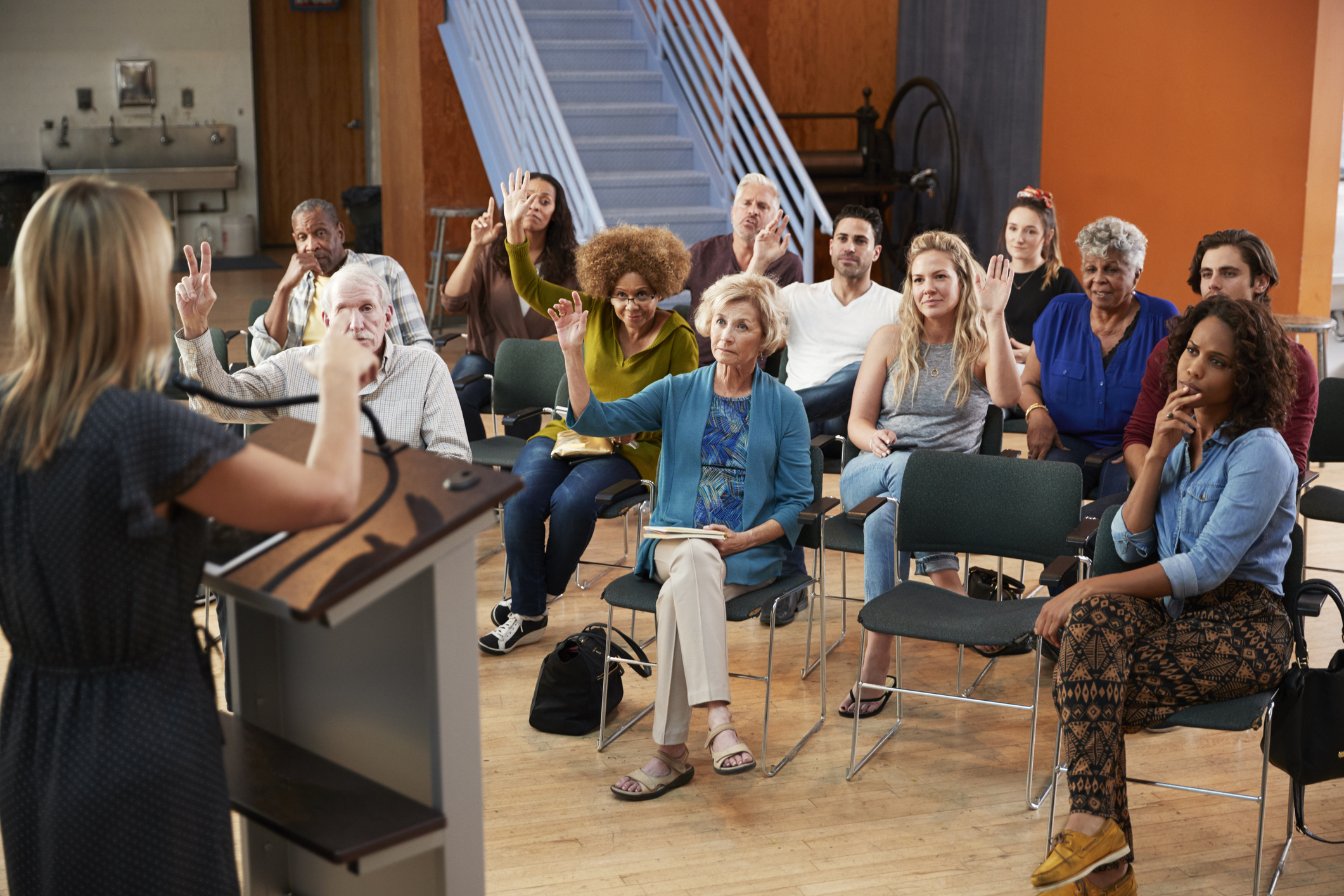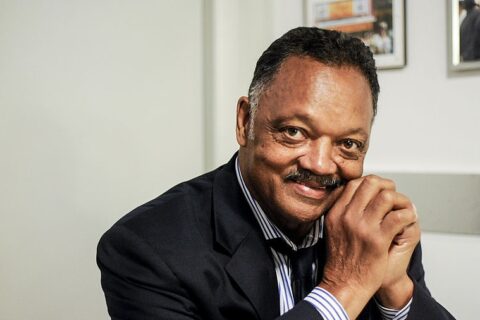Many Americans trust their local governments more than other branches of government and find that their local elected officials are doing a good job. As the form of government closest to the people, the public has more opportunities to engage with local government leaders on a regular basis.
Engaging with the public through collective decision-making is an effective method to build trust and relationships between local leaders and the public because it promotes transparency and accountability. While providing these opportunities to communicate meaningfully can build trust, many local leaders experience threats, harassment and violence surrounding these public meetings. This violence can have further implications on U.S. democracy (PDF) by deterring individuals away from public office due to threats against personal safety.
To support local leaders during public meetings and provide opportunities for the public to have their needs voiced, this blog explores the formal rules and processes for meetings where interactions with the public occur, also known as civic discourse. By establishing and reminding both elected leaders and the public of what civic discourse looks like, local governments can continue to provide critical local services while hearing from the people they serve and including them in the decision-making process.
What is Civic Discourse?
At a most basic definition, civic discourse is the format, rules and ways in which public discourse for governmental affairs are conducted. Here, civic discourse encompasses the rules of how communication is conducted between local officials during a public meeting, especially between local officials and the general public.
Municipal governments across the United States conduct their meetings in a variety of formats based on local, state and federal statutes. However, they do have some leeway in their ability to change or influence local civic discourse.
What Established Rules Govern Civic Discourse?
There are various types of meetings that local governing bodies may hold, which allows for varying forms of rules that govern these convenings. Local leaders should consult their attorneys to determine the appropriate rules for each public meeting setting and, when possible, aim for consistency in rules and format for engagement across meeting forums. Overall, these laws may include:
- Open Meeting Laws (Sunshine Laws): While there are some sunshine laws enforced at the federal level, each state has their own variation of open meeting laws. These laws, along with any adopted local laws, govern the transparency of government bodies, including access to data, government meetings, records practices, votes, data retention and fees related to requests. Specific jurisdictional differences exist, but Sunshine Laws broadly provide the public with the right to participate in government decision-making, often through designated public comment periods.
- Rules of Order or Decorum: While individuals are generally allowed to voice their opinions, government bodies may regulate the time, place and manner of speech, to maintain order and prevent disruptions. These rules often require the public to adhere to certain procedures like registering ahead of the meeting to speak or abiding by a time limit. The enforcement of decorum ultimately prohibits/mitigates/reduces the potential for disruptive or overtly hostile behaviors between the public and officeholders.
- Ethical Guidelines: Ethical guidelines allow local officials to lead meetings from a place of integrity. An acceptable baseline for these guidelines constitutes disclosing conflicts of interest, not using office for personal gain and adhering to ethical standards and ideals.
How Can I Practice Healthy Civic Discourse?
Local leaders strive to serve as healthy role models for their communities. Part of that modeling can include positive civic discourse behaviors, such as:
1. Promote and Practice the “Rules of Order” Within Council
Local elected leaders can set the tone of council meetings by following the established rules of order and public comment when communicating with one another. By reminding elected officials and the public of the rules at the beginning of the meeting and having them printed somewhere in the room to see, the public can see the rules demonstrated in real time.
2. Reduce Uncertainty By Explaining Public Comment Rules and Sticking to Them
Local elected leaders can set the tone of council meetings by following the established rules of order and public comment when communicating with one another. By reminding elected officials and the public of the rules at the beginning of the meeting and having them printed somewhere in the room to see, the public can see the rules demonstrated in real time.
3. Adopt a Code of Civility
To help set the rules and tone for municipal public meetings, a governing body may choose to adopt a code of civility, a pledge of civility, or a commitment to civil behavior. This Mayor’s Innovation Project Report (PDF) highlights models from several municipalities.
4. Consider Using Formal Titles for Everyone Who Speaks at a Public Meeting
Using titles can help keep the conversation respectful and showcase that the dialogue occurring is different from everyday conversations. This may help in separating a person from the discussion at hand as public meetings try to solve problems together as opposed to calling out individuals.
5. Know “Adjournment,” “Tabling” and “Ejection” are Options
As leaders in a formal board, the ability to adjourn the meeting or table an issue on an agenda remains an option at any time for a topic that is potentially unsolvable in the moment or needs more discussion. Additionally, a council may set rules establishing the conditions under which a member of the public or member of the council may be removed from a public meeting. For example, if a public member receives several verbal warnings or becomes physically threatening, a public safety officer may remove them.
Upcoming Webinar
Join the American Public Health Association, American Psychological Association, International City/County Management Association (ICMA) and the National League of Cities (NLC) on April 22, 2025 at 3:30 PM ET for an insightful conversation on the impact of incivility on public servants, including city managers, health professionals and elected officials.










